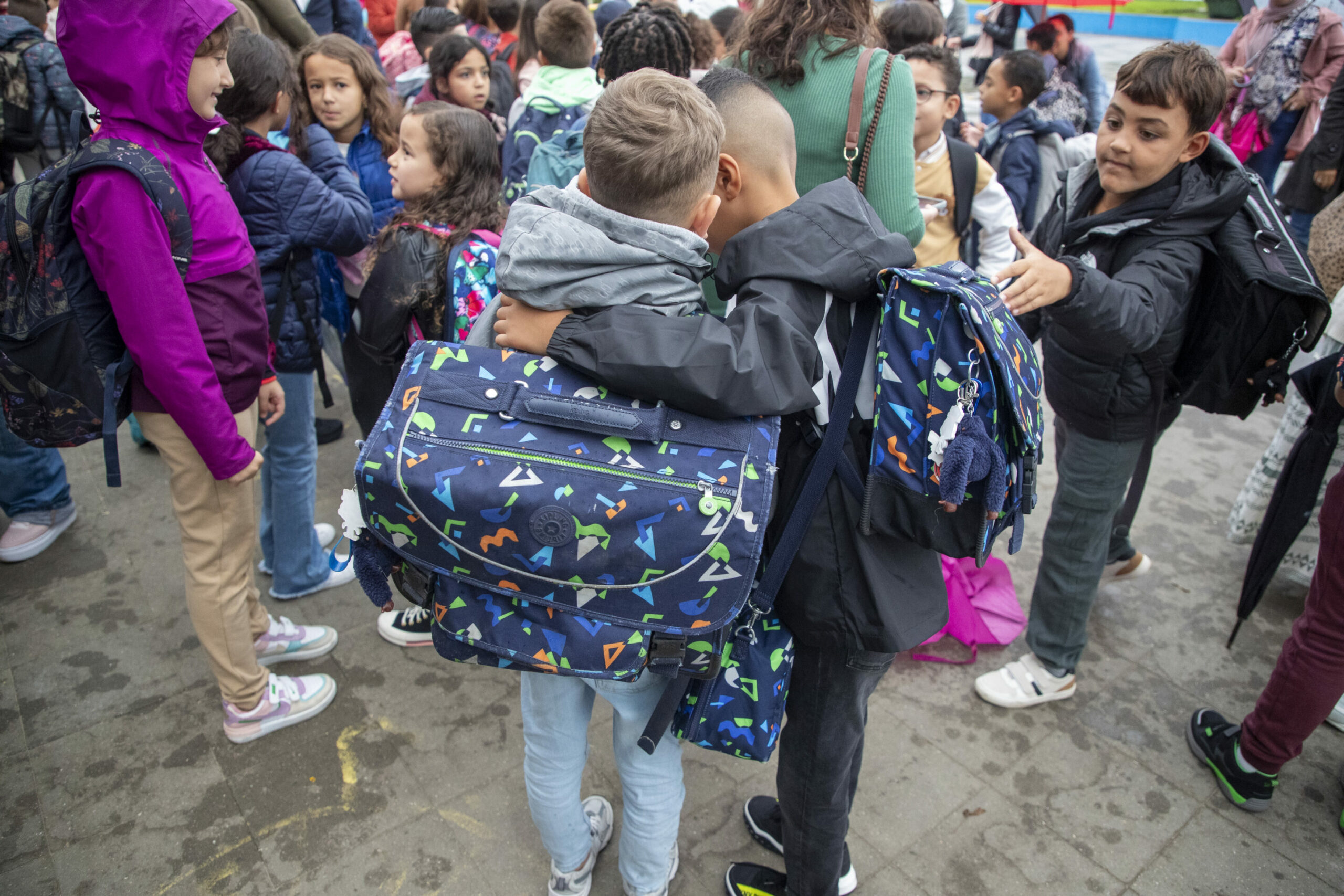Schools in Belgium are ramping up efforts to tackle smartphones for the sake of students' education and mental health, with some already reporting positive results.
Since the beginning of this academic year, smartphone regulations have been in place for French-speaking education, as part of the Walloon coalition agreement. The rules affect over 370 state schools, part of the Wallonie-Bruxelles Enseignement (WBE) network. This is set to expand to other institutions.
Despite making headlines as a "smartphone ban", the rules set out to be more of a "fair use regulation," according to WBE's Executive Vice-President of Innovation and Research, David Delcour.
"We wanted to make sure students could reach for their smartphone if they needed, for example to contact their parents or for pedagogical use [...] but we wanted to make sure they were not just using it anytime anywhere," Delcour told The Brussels Times.
'Screen to screen'
Smartphone regulations are not new for many schools in Belgium. "We began this three years ago. The fact that smartphones were banished in September was almost a non-subject," said Dahlia Wolf, the principal of Thil Lorrain (a WBE school in Verviers).
The decision comes following observations of students' behaviour. "I saw [students] eating screen to screen, not talking, not looking at each other," Wolf said. "It's important to create a community [...] we felt that mobile phones were a barrier."
Thil Lorrain embraces the use of digital technology in education. However, smartphones must remain out of sight during school hours, unless used for pedagogical reasons with the supervision of a teacher. The rule applies to all students except those in their final year of school.

Credit: Belga / Nicolas Maeterlinck
Since introducing the new rules, the school has noted "much less" conflict between students. Teachers have also reported that students are more present.
Similar trends were noted at the European School Brussels 1, which began implementing stricter smartphone rules this year. "The students are talking to each other more. There are no more children in the corner on their phones during the whole break. They are playing or reading books," said the president of the Parents' Association, Sigfrido Ramírez Pérez.
Just like Thil Lorrain, except for educational reasons, students cannot use digital devices during school hours or breaks, with the exception of those in the last two years of school.
For Ramírez Pérez, the rules not only help with education but also outside of classes. "If you are not using the device for hours, you will probably be able to abstain from using it yourself [...] because you already spend most of the day without the phone," he said.
'War on mobile phones'
Since the smartphone ban, similar measures have also been adopted or expanded in German-speaking and Dutch-speaking schools.
According to Delcour, the ban has not encountered significant issues at the WBE schools. He attributes this to the clarity of the rules as well as the support given to schools as they adapt to the new restrictions.
While smartphone rules can face initial resistance, the benefits of the regulations tend to ease concerns, according to both Wolf and Ramírez Pérez.
"Some teachers were against the ban because they were afraid that it would be a war on mobile phones," Wolf said. "But it's not a topic of conversation anymore."
For Ramírez Pérez, having all stakeholders, including students, be part of the conversation on smartphone use is key to ensuring rules are well received and implemented.
Delcour notes that the current rules allow for the local communities, including teachers and students, to tailor the smartphone ban to their local context and needs.
For Wolf, choosing how to approach the smartphone ban should always be centered around teaching. "It's all about education. A screen is a tool: we have to educate them on how to use it."

